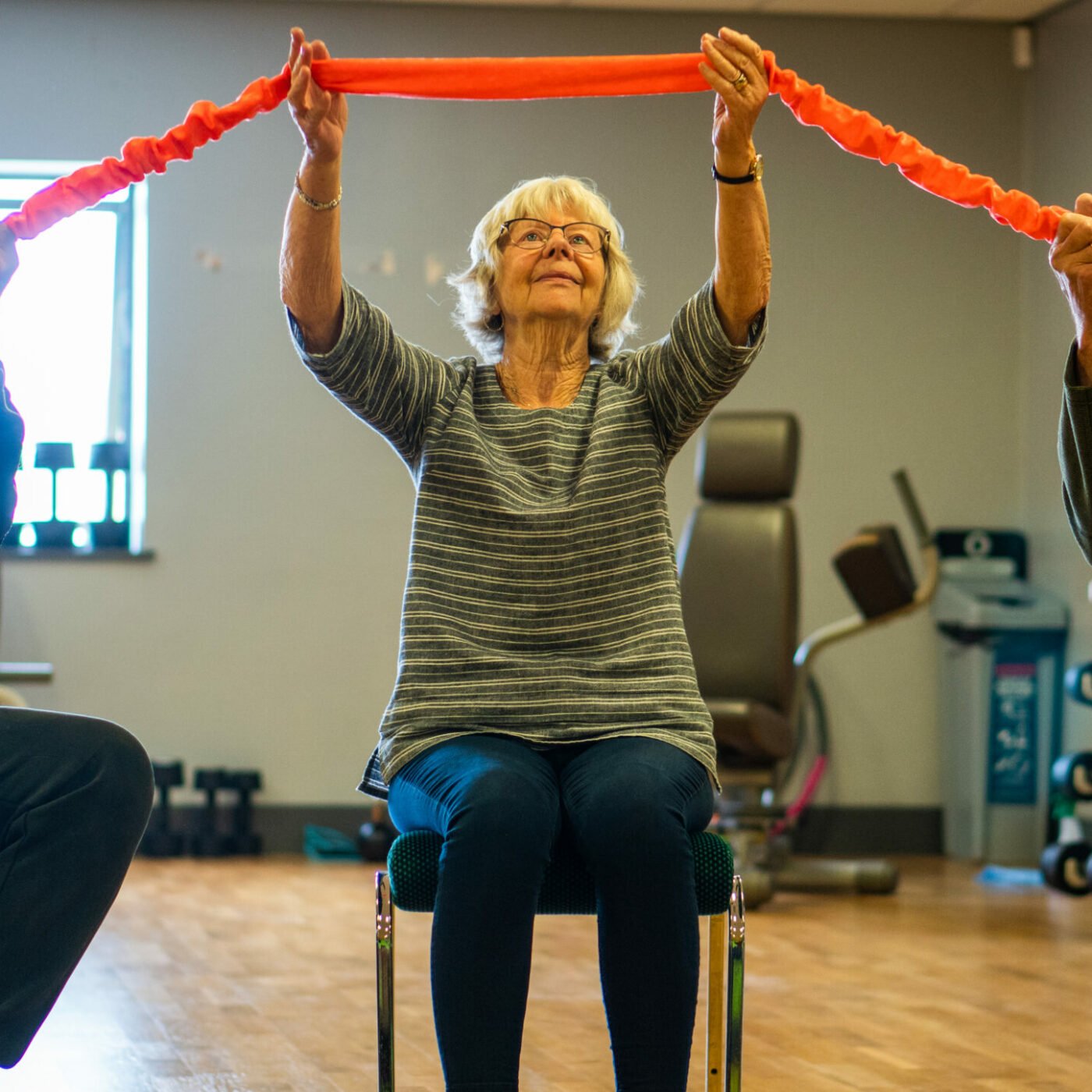Neurodiversity and ageing – What do we know?
Tags
Living well
Neurodiversity doesn’t disappear as you get older!
“The only person who acts sensibly is my tailor. He takes my measure anew every time he sees me. Everyone else goes by their old measurements.“, said George Bernard Shaw
As I get older, and this is something I can’t stop happening, I become more interested in the association between neurodiversity and ageing and also what changes for us differently over time.
I suppose this could have been a really short article because we know so little about the secondary impact of having neurodivergent traits as we get older despite a call for nearly ten years from a number of researchers saying we need to do more and know more. What I want to do is provoke some questions.
Aristotle famously wrote, “The more you know, the more you realize you don’t know.”
Children usually grow up
I have been working in the field of neurodiversity for more than 30 years. When I started, there was a view that children would ‘grow out’ of ‘it’- whatever it was! There were very few services for any adults at all across any neurodevelopmental conditions.
Increasingly, there are greater numbers of people being diagnosed as neurodivergent over 40 years and, of course, some now in their 50s and 60s who have also grown up with a diagnosis. We all want to know what that looks like and what is appropriate support. We also have more women being recognised who have also been missed or misdiagnosed in childhood.
Greater awareness is driving demand for services too.
The result of this is an ever-increasing waiting list for ADHD and Autism provision. This means some people can be waiting at least 5 years to gain a diagnosis. In many areas, there are no services at all, especially for conditions such as Dyspraxia/DCD or Communication Disorders.
What do we know about ageing and neurodiversity?
We now recognise that children and adults with neurodivergent traits differ from one person to the next. Their life experiences and opportunities will also be different. We also know that all neurodivergent traits co-occur often, so the ‘classic’ person with X is mythical in many ways.
What does it mean to be diagnosed with one or more neurodivergent conditions in later life? When gaining a diagnosis later, we try to make some sense of our childhood or adult life that has passed. You may have spent a life compensating or masking to have tried to fit in. You may have been given the wrong diagnosis for many years. I know people have felt feelings of grief and anger when a diagnosis has been given.
Neurodivergent traits don’t always come alone.
There are often increased rates of conditions such as depression and anxiety that accompany autism into mid and later life (Geurts & Vissers, 2012; Geurts et al., 2015; Lever & Geurts, 2016b). This is also more common in ADHD and DCD. Only a few older person physicians provide medical care for adults with Autism, and most will not have had any training at all relating to neurodiversity or other neurodivergent traits.
What do we know about people with NDs who are older?
Are there greater challenges in some areas, such as lowered immunity or a greater risk of dementia? We know that some people with Autism who are 65 years can have a 2.6 times greater risk of dementia.
What we need to consider is what do neurodivergent traits look like in older adults?
Understanding autism in older adults
While Autism is usually diagnosed in childhood, an increasing number of older adults are being formally diagnosed in later life. Masking autism symptoms can result in years of stress – therefore, receiving a diagnosis as an older adult can positively affect physical and mental well-being, improving overall quality of life.
Developmental Coordination Disorder
We know that children with Developmental Coordination Disorder (also known as Dyspraxia) have a greater risk of accidents and falls. They also find it harder to cross the road with confidence and safety. What happens to your joints, balance and coordination if you have DCD as you get older? Falls in the elderly general population are associated with reduced quality of life and higher costs of health care. We also know if your balance is compromised in the first place this may potentially put you at a greater risk of falls. If around 5 % of the population have DCD, perhaps we should be giving some guidance on maintaining core stability earlier on in their lives.
What happens if you acquire other conditions alongside DCD, such as Rheumatoid Arthritis? Poorer motor coordination and joint pain may be even more problematic. We also know there is an association with DCD and Joint Hypermobility Syndrome too, and I have written about this previously too. What happens when you have these challenges as you get older?
ADHD
A recent meta-analysis of ADHD across the ages has shown that untreated ADHD has also been shown to be associated with accidents. Surman wrote about the challenge of diagnosing ADHD in older adults. Thorell and colleagues wrote about the quality of life in ADHD people age 60 years. They showed the quality of life was similar to younger people with ADHD. However, the study did not focus on the next decade of life, and it may well be when we see greater differences. Sandra Kooij also wrote a review about ADHD and ageing too.
There is increasing interest in trying to understand the changes in a drop in oestrogen and progesterone levels in women going through menopause with ADHD. However, the review published in 2022 showed limited research.
ADHD traits also may be less common in the general population of older adults than in younger adults, suggesting that the threshold for an atypical burden of ADHD traits may be lower in older populations. How much do clinicians working with older patients even consider neurodivergent traits in the mix? A paper by Chung and colleagues concluded that most cases of ADHD in adults are not being diagnosed by clinicians. Their study showed that the odds of diagnosis dropped steeply with age among adults. Relative to 18-24-year-olds, 25-34-year-olds were 1/6th less likely to be diagnosed with ADHD, 35-44-year-olds 1/3rd less likely, 45-54-year-olds less than half as likely, 55-64-year-olds less than a quarter as likely, and those over 65 about a twentieth as likely. This is consistent with other studies reporting an age-dependent decline in the diagnosis.

Autism Spectrum Conditions
There is greater interest in research relating to older ageing and neurodiversity, but calls for this started 10 years ago relating to autism.
What is it like accessing health care services as an older person with Autism? How much is this considered, including the sensory setting, meeting new people, negotiating health care provision for example?
Brotman and colleagues have also written about the crisis relating to neurodiversity and ageing as carers too. This becomes a real concern where there may be increased demand to care for someone when parents are also getting older themselves.
As you can see, I seem to have a lot more questions than answers. It is going to be important that this work is not undertaken in siloes and by label rather than considering the complexity of different combinations of neurodivergent traits and how they link to different conditions. I wrote last year about brains and bodies in relation to neurodiversity. Maybe now we need to take a more lifelong multi-system approach to neurodivergent traits and be person-centred, similarly to what we do for Diabetes provision.
Can retirement be a time that reduces anxiety levels because of not having to deal with everyday workplace challenges and open up an era of choice of how to live that works for you?
What I know is I am getting older and as Oscar Wilde said
“I am not young enough to know everything.”
This article was originally published on LinkedIn Newsletters – Subscribe to Professor Kirby’s newsletter here.

Professor Amanda Kirby is a CEO of Do-IT Solutions, a tech-for-good company that delivers web-based screening tools and training that help 1000s of people deliver person-centred solutions relating to neurodiversity and wellbeing.
She also has 25+ years of working in the field of neurodiversity. Professor Kirby is a medical doctor and has a PhD in the field of neurodiversity.
Professor Kirby has co-authored a book with Theo Smith, Drive Innovation, Performance, and Productivity with a Neurodiverse Workforce. This year she also released her 10th book, called Neurodiversity and Education, and last year was voted one of the top 20 Thinkers by HR magazine for 2022
Read our latest interviews
Browse our latest interviews, and research on elderly living, from leading national experts.